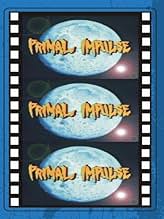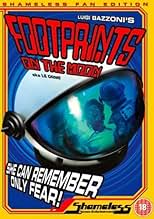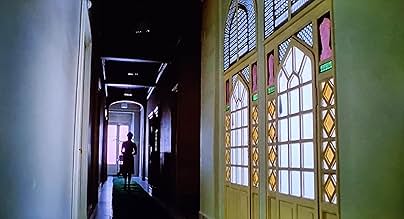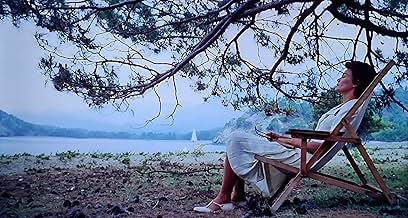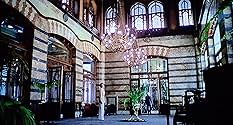ÉVALUATION IMDb
6,6/10
2,6 k
MA NOTE
Ajouter une intrigue dans votre langueAfter being tormented by dreams about astronauts on the moon, a translator visits a deserted seaside town whose inhabitants know her, although she does not know them.After being tormented by dreams about astronauts on the moon, a translator visits a deserted seaside town whose inhabitants know her, although she does not know them.After being tormented by dreams about astronauts on the moon, a translator visits a deserted seaside town whose inhabitants know her, although she does not know them.
John Karlsen
- Alfredo Laurenti
- (as John Carlsen)
- …
Miriam Acevedo
- Alice's Supervisor
- (as Myriam Acevedo)
Rosita Torosh
- Marie Leblanche
- (as Rosita Toros)
Bruno Degni
- Member of the International Congress
- (uncredited)
Franco Magno
- Member of the International Congress
- (uncredited)
Feridun Çölgeçen
- Hotel Concierge
- (uncredited)
Histoire
Le saviez-vous
- AnecdotesFinal film that features of Dhia Cristiani's voice.
- GaffesCrew member visible reflected in mirror when Alice wakes up in the Peacock Room.
- Citations
Alice Campos: I'm not crazy!
Commentaire en vedette
I consider this a missed opportunity. I have very fond memories of the filmmaker's debut, an interesting psychosexual oddity called La Donna Del Lago, and watching this I'm inclined to think that earlier film worked so well because the giallo had not been mapped down yet; so he was free to travel where it was novel at the time. Polanski got there that same year, but he was already a name and had Deneuve with him and so made the bigger splash. Film history has noted Repulsion.
This could have been even better. He has brought ambitious imagination with him, a visual palette of bright golden hues and relaxing blues, a sense of place and folded mysterious time with memory from Marienbad. He has Vittorio Storaro's eye behind the lens.
The opening is more than promising. A woman wakes up with no memory of three days past. She has just seen a dream, a feverish vision of astronauts staggering on blasted moonscapes, which she remembers is from a movie called the same as the one we're watching; but a movie she left without watching the ending. She goes to Italy to investigate, in an effort to bring these images into focus.
There it falls apart, in Italy incidentally. In the ten years since that first film that was in some ways a giallo ancestor the genre had come and was already on its way out. Between these two films Bazzoni had worked where it was the trend in the Italian industry, making a western and another giallo called The Fifth Chord. So when the more ambitious material for this came together, there were already footsteps he was expected to walk and had been trained to. The circumstances of a commercial movie industry were just so.
So for the middle part of the film we get a giallo worked from convention. The convoluted plot where each character withholds crucial information until the time is right, and the protagonist has to cobble together a puzzle from clues and red herrings. Much ado.
It comes full circle in the finale; the agents which she has imagined to be controlling her illusion return to pull her back into the fiction of the dream. It happens with extraordinary images of a stretch of empty cosmic beachside.
Bazzoni never made another film after this. In the meantime, Polanski had rocketed into Hollywood orbit and was already on his way out. I reckon that Bazzoni was one of our sad losses, but alas he never made it to France where money didn't always expect to fill a double-bill.
This could have been even better. He has brought ambitious imagination with him, a visual palette of bright golden hues and relaxing blues, a sense of place and folded mysterious time with memory from Marienbad. He has Vittorio Storaro's eye behind the lens.
The opening is more than promising. A woman wakes up with no memory of three days past. She has just seen a dream, a feverish vision of astronauts staggering on blasted moonscapes, which she remembers is from a movie called the same as the one we're watching; but a movie she left without watching the ending. She goes to Italy to investigate, in an effort to bring these images into focus.
There it falls apart, in Italy incidentally. In the ten years since that first film that was in some ways a giallo ancestor the genre had come and was already on its way out. Between these two films Bazzoni had worked where it was the trend in the Italian industry, making a western and another giallo called The Fifth Chord. So when the more ambitious material for this came together, there were already footsteps he was expected to walk and had been trained to. The circumstances of a commercial movie industry were just so.
So for the middle part of the film we get a giallo worked from convention. The convoluted plot where each character withholds crucial information until the time is right, and the protagonist has to cobble together a puzzle from clues and red herrings. Much ado.
It comes full circle in the finale; the agents which she has imagined to be controlling her illusion return to pull her back into the fiction of the dream. It happens with extraordinary images of a stretch of empty cosmic beachside.
Bazzoni never made another film after this. In the meantime, Polanski had rocketed into Hollywood orbit and was already on his way out. I reckon that Bazzoni was one of our sad losses, but alas he never made it to France where money didn't always expect to fill a double-bill.
- chaos-rampant
- 25 oct. 2011
- Lien permanent
Meilleurs choix
Connectez-vous pour évaluer et surveiller les recommandations personnalisées
- How long is Footprints on the Moon?Propulsé par Alexa
Détails
- Durée1 heure 36 minutes
- Mixage
- Rapport de forme
- 1.85 : 1
Contribuer à cette page
Suggérer une modification ou ajouter du contenu manquant



